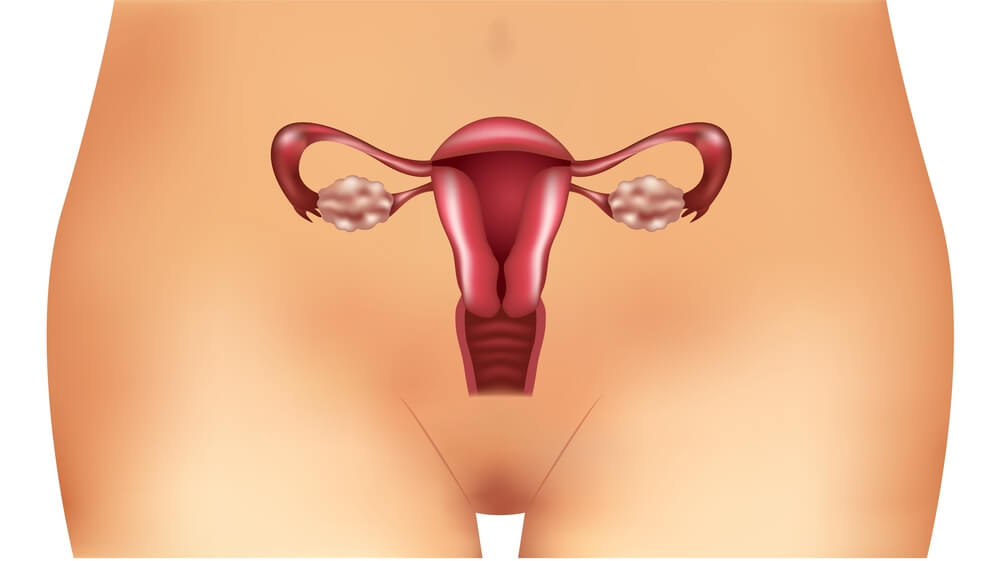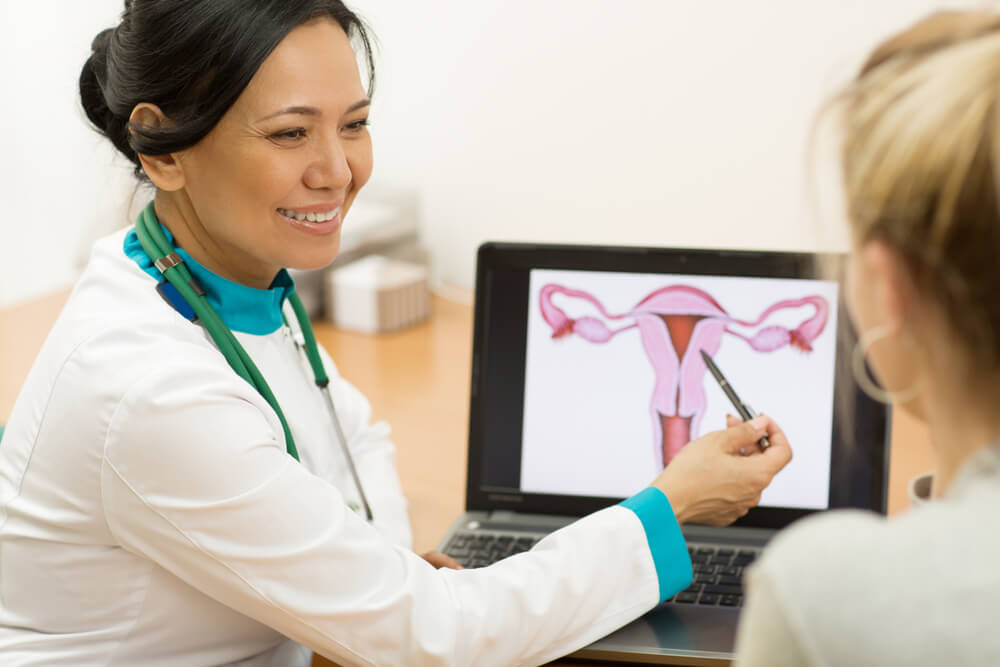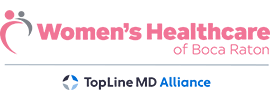Disclaimer: Please note that this blog is for educational purposes only, it includes general information on health-related topics. Women’s Healthcare of Boca Raton is giving medical advice to Patients Only. Follow this link to request an appointment with Dr. Ellman.
PCOS, or polycystic ovarian syndrome, is a disorder that affects some women’s hormones during their childbearing years. Approximately 2-26% of this group have the syndrome, but the exact statistic is unknown since women’s healthcare studies have cited that nearly 70% of those afflicted remain undiagnosed.
A woman with PCOS may skip menstrual periods, and, when she has one, it may last a while due to the excess androgens, or male hormones, in her body.
These androgens exist for a reason. First of all, her ovaries may develop cysts, or small, fluid-filled follicles, which make it difficult to release eggs monthly. As a matter of fact, “polycystic” means “several cysts.”
Because these women ovulate less, estrogen and progesterone levels simultaneously decrease, and androgen levels rise, which are responsible for disrupting the regular monthly period.
PCOS Causes
No one is sure of the exact causes of PCOS. However, many factors may contribute to the syndrome. Some of these include:
- Inflammation
Women with PCOS have a certain type of low-grade inflammation that can stimulate their ovaries to make androgens.
- Genetics
Many studies have linked genes and heredity to PCOS. It is extremely likely that a woman with the disorder has a mother or sister that is also affected, but this is not always the case. It is widely thought that many different genes contribute to the syndrome.
- Insulin Resistance
Insulin is the hormone that allows the body to use its number-one supply of energy, which is sugar. However, if your body resists its insulin, it cannot process sugar, and blood sugar levels will rise, causing a cycle that will produce even more insulin. This can cause androgen levels to rise correspondingly.

Symptoms of PCOS
There are several signs of the polycystic ovarian syndrome that are first recognizable during early puberty around the time of the first menstrual cycle. However, there are cases of PCOS that develop later in life, such as after tremendous weight gain. Sometimes the symptoms go undetected until a woman has substantial trouble conceiving a child.
There are quite a few symptoms of PCOS. Diagnosis usually requires at least two or more of the following signs:
- Too Many Androgens
A surplus in male hormones, which affects ovulation and the menstrual cycle, is usually detected with a simple blood test.
- Irregular Menstrual Cycles
Whether they are scarce, prolonged, heavy, or light, periods with PCOS are irregular and a common sign of the condition. Many women experience fewer than nine cycles annually, and, when they do occur, there is more than the average flow of blood and tissue released.
- Ovarian Cysts
There may be large follicles that surround your eggs. This means they will not be able to mature. In other words, your ovaries may not be able to do their job.
- Obesity or Weight Gain
Almost 80% of women with this affliction are either overweight or obese. And, unfortunately, all other symptoms are typically worse if you are obese.
- Body Hair
Almost three-quarters of the women suffering from PCOS grow facial and body hair due to an excess of male hormones. Hair may appear on a woman’s stomach, back, or chest.
- Acne
Androgens can also produce a surplus of oils in the skin, causing breakouts on the face, back, and chest.
- Balding
Portions of the hair on a woman’s scalp may thin out greatly. Sometimes, clumps of hair fall out, causing patches of baldness.
- Headaches
These can sometimes be a cause of multiple changes in hormone levels.
- Dark Skin Patches
Dark patches may form in areas like the armpits, groin, beneath the breasts, and anywhere the body creases.
When to See a Doctor
If you have concerns about fertility issues or irregular menstrual periods, or if you are experiencing signs of an excess of male hormones, such as acne, balding, or body hair, it may be time to consult a physician.

PCOS Diagnosis
While there is no standard diagnostic test for PCOS, your doctor will probably take the time to discuss concerning symptoms with you. This will include your menstrual history and your weight fluctuations over the years. He or she will probably screen for insulin resistance and check for excess acne and body hair growth.
If your doctor believes that there exists enough evidence of PCOS, he or she may order blood tests to measure hormone levels. This is also done to rule out other possible maladies that sometimes mimic PCOS.
Your physician may also conduct a pelvic exam to manually and visually check your ovaries for cysts, as well as inspect your entire reproductive system for any anomalies. If there is anything out of the ordinary, an ultrasound can check the ovaries and uterine lining to get a closer look.
How to Treat PCOS
PCOS is not curable, but its individual symptoms are treatable. Each treatment focuses more on a given issue, such as acne, obesity, body hair, or infertility. Here are some ideas on how to treat PCOS:
- Medications
To induce ovulation, there is Clomiphene, an anti-estrogen taken at the beginning of the menstrual cycle, and Letrozole, a breast cancer drug that can stimulate your ovaries. If neither of those work, the type 2 diabetes drug Metformin will lower your insulin levels, which reduces androgens and allows ovulation to occur more easily.
If you wish to regulate your menstrual period, your doctor will probably recommend birth control pills as a first-line defense against the inevitable monthly increase in the production of androgens. The best birth control pills for this purpose are the ones that contain both progestin and estrogen.
If you regularly forget to take pills, vaginal rings or skin patches containing these hormones are available.
You can also take progestin in pill form by itself for 10 days to two weeks every other month to regulate your menstrual cycle. Just note that it does not prevent pregnancy.
Lastly, your physician may try gonadotropin injections, which contain correcting hormones.
To quell body and facial hair growth, there are androgen-blocking medications like Spironolactone and facial creams like Eflornithine.
- Electrolysis
This is a procedure where a doctor inserts a small needle emitting an electric current into each hair follicle in order to destroy it, eliminating facial hair permanently.
- Ovarian Drilling
Ovarian drilling is a final option that is available to treat infertility when other treatments are not successful. The surgery consists of puncturing the ovaries with a heated, thin needle to encourage regular ovulation.
- Lifestyle Changes
A few simple lifestyle tweaks can go a long way towards managing the troublesome symptoms of PCOS. For example, while it is hard to maintain a healthy weight with this condition, you can turn the tables in your favor by going on a diet low in carbohydrates and staying active.
High carb diets increase insulin levels, resulting in an onslaught of PCOS symptoms. That said, if you must eat carbs, complex carbs raise blood sugar more slowly.
Also, regular exercise keeps weight in check and lowers your blood sugar level. The activity may even treat or prevent insulin resistance altogether. Weight loss also lowers androgen levels and may naturally restore ovulation.
- Complications
Early diagnosis and treatment of polycystic ovarian syndrome is key to reducing your risks of long-term, serious complications. These can include heart disease, type 2 diabetes, severe liver inflammation, high blood pressure, high cholesterol, stroke, uterine bleeding, endometrial cancer, depression, and sleep apnea, which means you could stop breathing for a moment while asleep.
Infertility is rampant with PCOS due to infrequent ovulation, but women lucky enough to become pregnant are at a higher risk of gestational diabetes, miscarriage, or premature birth. This is why it is crucial that you see a women’s healthcare provider if you suspect that you have this disorder.
If you suspect you have PCOS or you have been recently diagnosed, there is hope. The caring physicians at Women’s Healthcare of Boca Raton will gladly meet with you to discuss your concerns and perform an in-depth examination of your core symptoms. Come into our office or call us today to schedule your appointment.
Do you have questions? Comment below, and we will answer you as best as we can.

Dr. Ellman is a Board Certified OBGYN who established his medical practice in South Florida over 25 years ago. His office, Women’s Healthcare of Boca Raton, is located in Boca Raton, Florida at West Boca Medical Center. Dr. Ellman attended Albert Einstein College of Medicine of Yeshiva University, where he received his medical degree. He went on to intern at Beth Israel Hospital in Boston- an affiliate of Harvard Medical School- and continued his residency at North Shore University Hospital in Manhasset, New York- an affiliate of Cornell Medical School.
Dr. Ellman has practiced Obstetrics and Gynecology in the Boca Raton area since 1995. In addition to treating patients at West Boca Hospital, Dr. Ellman also treats patients through his own private practice, Women’s Healthcare of Boca Raton, located on the West Boca Medical Campus.

